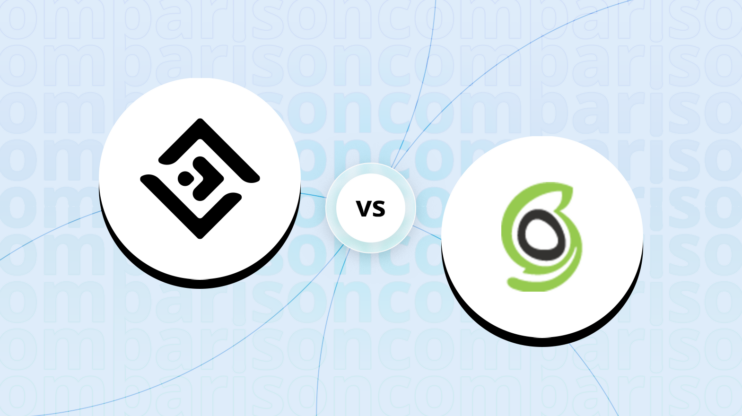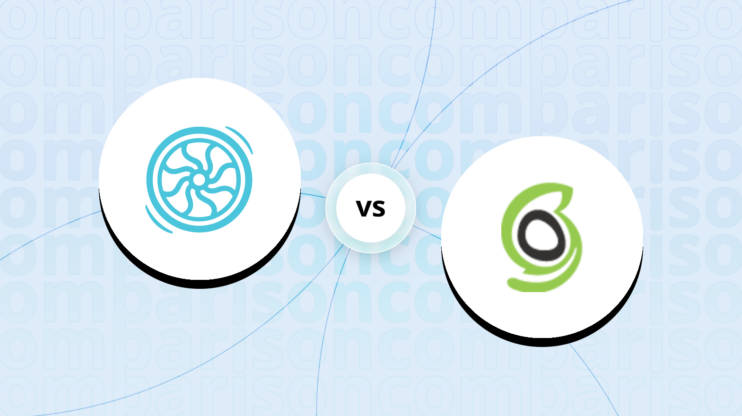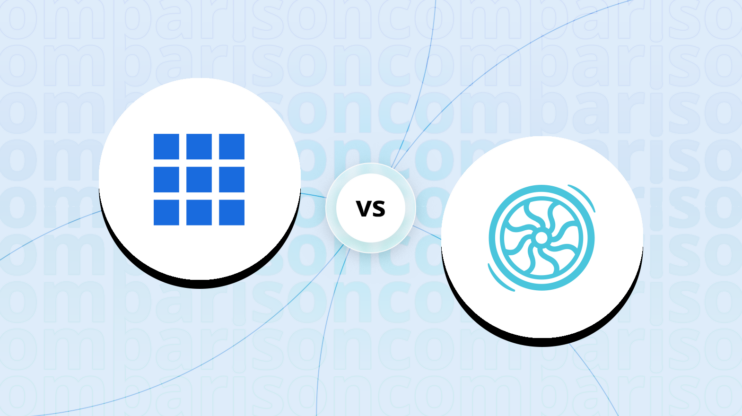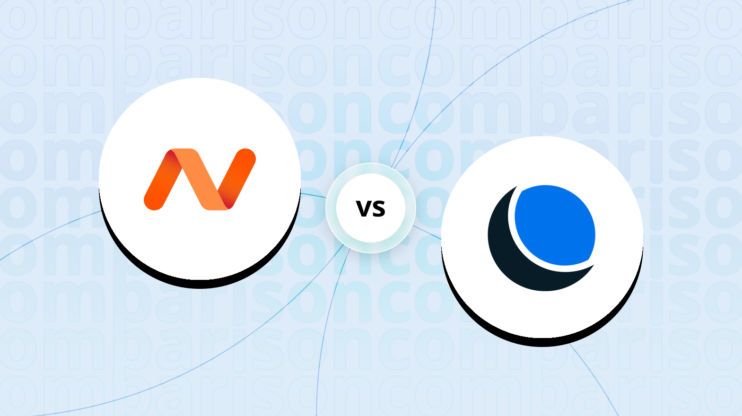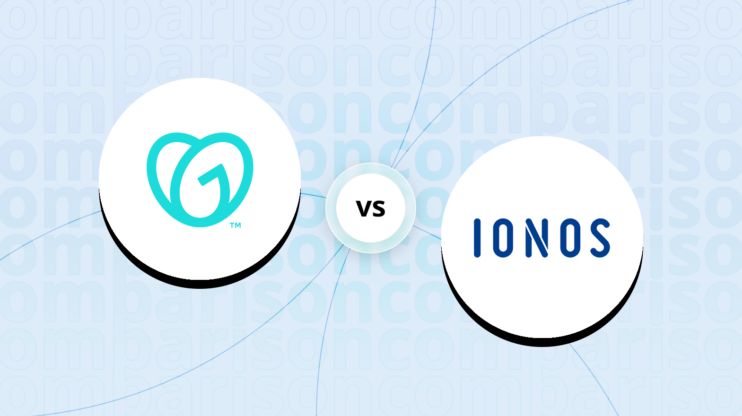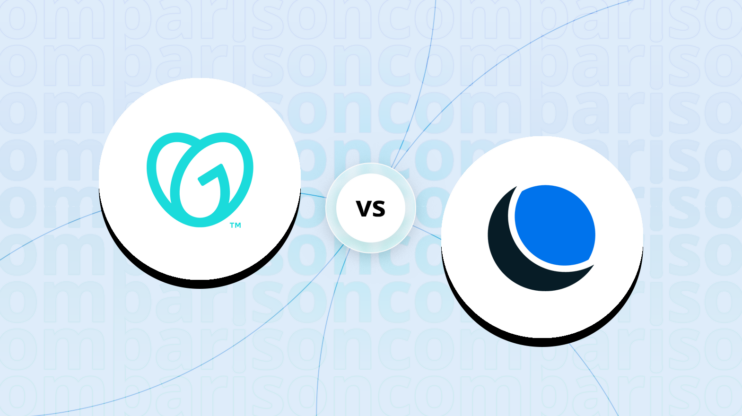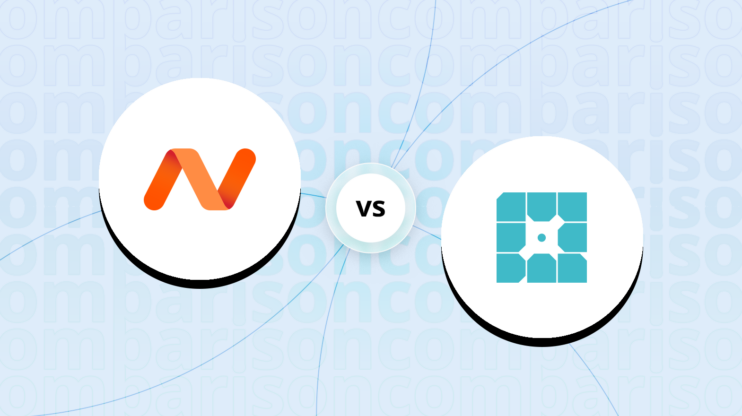Final verdict
Looking over SiteGround vs. Bluehost, it’s clear why both hosts are so popular. They have both hosted millions of
websites that run on WordPress for decades, building up a loyal customer base.
SiteGround (Overall grade: 8.8)
is renowned for its superior uptime, faster response times, and advanced security measures, leveraging Google’s premium cloud infrastructure for high reliability and speed. Customizable client roles and an intuitive user management interface make SiteGround ideal for agencies and high-traffic websites. Their comprehensive support system, backed by stellar user reviews and rapid ticket responses, elevates the customer experience. However, SiteGround’s plans are relatively more expensive, especially at renewal, which may be a consideration for budget-conscious users.
Bluehost (Overall grade: 8.2)
excels in cost-effective plans that cater well to beginners and small businesses, offering a variety of hosting options from shared to dedicated hosting. Its world-class speed and perfect uptime guarantee, along with features like free SSL and daily backups, provide solid value. While it offers great performance and ease of use, some users report issues with technical support and hidden fees. Despite these drawbacks, Bluehost remains a reliable and affordable choice, especially for WordPress and multimedia-heavy websites due to its optimized infrastructure and feature-rich plans.
 Overall grade:8.2 |
 Overall grade:8.8 |
|
|---|---|---|
| Uptime and Availability | 9.0 | 9.4 |
| Hosting Performance | 8.9 | 8.8 |
| Hosting Security | 8.1 | 8.6 |
| Price | 8.1 | 8.4 |
| Hosting Features | 7.0 | 8.5 |
| Ease Of Setup | 8.6 | 8.9 |
| User Management | 8.0 | 8.4 |
| Customer Support | 7.9 | 9.2 |
| User feedback | 3.5/5 | 4.3/5 |
Hosting types offered
Both platforms provide a variety of hosting types, each designed to meet the different needs of users.
 |
 |
|
|---|---|---|
| Shared hosting | ||
| Cloud hosting | ||
| WordPress hosting | ||
| Ecommerce hosting | ||
| VPS hosting | ||
| Dedicated hosting |
Although both offer a variety of hosting plans tailored to different needs, in
certain cases, one platform may prove to be more suitable.
Detailed comparison
Uptime and availability
Evaluates the average uptime statistics, uptime guarantee and overall availability of the hosting
provider
Score Components:
- Uptime percentage (30%): evaluates the uptime statistics in given period of time
- Uptime guarantee (20%): Assesses if the platform offers an uptime guarantee and
whether the actual uptime matches the promised guarantee. - General performance (25%): Evaluates how fast is the average response time and overall
it’s stability. - Responsiveness (10%): Adaptability to different devices and screen sizes.
- Availability (25%): Reflects the total downtime and number of outages.
 9.0
9.0
 9.4
9.4
🏆 Winner SiteGround: It’s superior uptime and significantly faster response times make SiteGround a better choice for users who require high performance and stability from their hosting provider.

SiteGround shows a slightly superior performance in terms of reliability and speed. Both hosting services have impressive uptimes, with SiteGround slightly edging out Bluehost with a 99.99% uptime over a 3-month period compared to Bluehost’s 99.89%. This difference in uptime is reflected in the number and duration of outages, where SiteGround experienced 3 outages totaling 12 minutes, while Bluehost had 5 outages totaling 2h 12 minutes.

SiteGround’s advantage is more pronounced in terms of server response time. It boasted an average response time of 389ms, which is significantly lower than the shared hosting industry standard and faster than Bluehost’s average response time of 670ms, which can peak up to 1152ms. This suggests that SiteGround is not only more reliable in maintaining uptime but also in delivering faster website loading speeds, making it a preferable option for users prioritizing performance.
Hosting performance
Score Components:
- Hosting speed (30%): This includes SSD quality, Load times, PageSpeed score ranges,
additional information on website speed, built-in plugins for performance enhancement, available caching
methods, and CPU/RAM options - CDN (20%): Considers whether CDN is available or not, whether it’s free or paid, and
the quality of the CDN service - Available data centers (30%): Evaluates the number of data centers and their locations
globally. - Scalibility (20%): Looks at whether elastic scaling is available, the process required
to scale (manual upgrade vs. automatic scaling), the presence of dedicated servers, and the costs
associated with scaling.
 8.9
8.9
 8.8
8.8
🏆 Winner: Bluehost: Offers high speed and reliable performance with great uptime.
Bluehost and SiteGround both deliver impressive hosting performance. Bluehost stands out with world-class speed and perfect uptime guaranteed, and it incorporates SSD storage across all plans for faster load times. It also features built-in CDN included in all plans, optimizing image and content delivery globally. Bluehost operates a global data center network, further enhancing speed by reducing latency. SiteGround, on the other hand, leverages Google’s premium cloud infrastructure and advanced SSD persistent storage for high reliability and speed. Both providers use advanced caching methods and the latest technologies but SiteGround’s custom PHP setup and SuperCacher features deliver notable speed and efficiency. Both provide free CDN services, although SiteGround’s in-house built CDN utilizes Google’s network with over 170 edge locations.
Website Speed
When comparing website speed, Bluehost offers superior speed performance for WordPress sites with increased CPU frequency and scalable PHP workers, allowing for more efficient processing of requests. Its built-in CDN and SSD storage ensure faster page load times across a global server network. SiteGround employs a unique PHP and MySQL implementation significantly reducing the time to first byte (TTFB) and enabling static and dynamic caching for up to 5x faster site speeds. Both hosting services deliver fast and reliable speeds, but Bluehost’s optimized infrastructure for WordPress sites gives it a slight edge in this category.
Scalability
In terms of scalability, Bluehost offers a variety of plans including shared, VPS, dedicated, and cloud hosting, allowing users to seamlessly upgrade as their website grows. The cloud hosting plan ensures 100% network uptime and is optimized for high-traffic sites. SiteGround provides elastic scaling with its StartUp, GrowBig, and GoGeek plans, along with cloud hosting options starting at $100 per month. Both hosting providers offer dedicated servers; however, Bluehost’s range of options and seamless upgrade process make scaling more straightforward for users.
Hosting security
and regulatory requirements
Score Components:
- Technical security measures (40%): This includes encryption, firewalls, DDoS
protection, secure configurations, server monitoring, access control and availability of security addons
(e.g Sitelock security). - Operational security measures (30%): Encompasses data privacy, backups and data
redundancy. - Compliance and certifications (20%): Adherence to legal and regulatory requirements
(e.g., GDPR, HIPAA) and possession of certifications (e.g., ISO 27001, SOC 2). - Business and reliability (10%): Factors in the provider’s reputation, uptime
guarantees, and customer support.
 8.1
8.1
 8.6
8.6
🏆 Winner SiteGround: SiteGround’s advanced automated backups and AI anti-bot system make it a secure hosting choice.
Both Bluehost and SiteGround, have notable differences in their approaches to technical and operational
security, as well as in their compliance with regulations.
Technical security measures:
Bluehost offers free SSL certificates with all plans, premium SSL from Comodo, DDoS protection, and a web application firewall. They include automated daily backups via Jetpack and malware scanning through SiteLock. SiteGround provides free SSL certificates via Let’s Encrypt, an in-house WAF with custom rules, daily backups, and an AI anti-bot system that blocks millions of threats daily. Both providers include automated WordPress updates; however, SiteGround’s updates extend to WooCommerce as well.
Operational security measures:
Bluehost includes automated daily backups, DDoS protection, and a web application firewall in their cloud hosting plans. They also support two-factor authentication, email security with spam filters, and file encryption in their professional email plans. Conversely, SiteGround offers distributed backups with up to 30 copies and the option for on-demand backups. SiteGround’s multi-layered security feature uses Google Cloud’s encrypted communication and phishing-resistant Security Keys to prevent unauthorized access.
Compliance and certifications:
Bluehost complies with GDPR, ensuring users’ data privacy per EU regulations. PCI compliance is available for VPS and dedicated server plans, but not for shared hosting unless combined with a CDN service like Cloudflare. SiteGround is GDPR compliant but does not offer PCI-compliant servers on any hosting plan.
 |
 |
|
|---|---|---|
SSL certificate |
Free SSL, Premium SSL by Comodo |
Free SSL |
Additional security features |
Automated backups, DDoS protection, web application firewall, SiteLock malware scanning |
Automated backups, AI anti-bot system, in-house WAF |
PHP versions |
PHP workers (vCPUs) available |
Not specified |
GDPR compliance |
Yes |
Yes |
HIPAA compliance |
Not specified |
Not specified |
PCI compliance |
Yes, but only for VPS and dedicated servers |
No |
Hosting features
Score Components:
- Domains (20%): Assesses the availability of a free domain, domain purchase options, and
pricing - Email (15%): Considers if the provider offers full email hosting, or is reselling
third-party service, and if the email is only transactional or not - Website builder (15%): Checks if website builder is available, and it’s user
friendliness and overall the level of customization allowed. - Staging environment (20%): Determines if a staging environment is available, allowing
for testing changes before going live. - FTP & SFTP accounts (10%): Evaluates if and how easily users can access FTP and
SFTP accounts - Git and SSH access (20%): Assess whether Git is integrated into the hosting service and
if SSH access is provided
 7.0
7.0
 8.5
8.5
🏆 Winner
SiteGround: Offers a comprehensive range of features with excellent support and high performance.
Both Bluehost and SiteGround provide diverse hosting solutions catering to different user needs. Bluehost offers multiple hosting types, from shared to dedicated hosting, with specialized plans for WordPress and WooCommerce users. A notable unique selling point for Bluehost is its inclusion of free AI tools for site creation and assistance, making it user-friendly for beginners and those who appreciate automation. Additionally, Bluehost provides free domain registration for the first year and promotional pricing for new customers, although these renew at the regular rate thereafter.
SiteGround, on the other hand, emphasizes managed WordPress services and robust security features like an AI Anti-Bot system and custom Web Application Firewall (WAF). They offer a free site builder across all plans, making website creation straightforward even for novices. SiteGround’s noteworthy benefits include advanced daily backups, a high-speed infrastructure using premium Google Cloud, and a 30% faster PHP implementation, which all contribute to an optimized website performance. Unlike Bluehost, SiteGround also offers white-label site management and easy Git repo creation, catering well to professionals and developers managing multiple sites.
 |
 |
|
|---|---|---|
| Free domain | Yes, for the first year | No |
| Free SSL | Yes, for the first year | Yes |
| Email hosting | Yes, through Google Workspace | Yes |
| Website builder | Yes | Yes |
| Staging environment | No | Yes |
| FTP & SFTP accounts | Yes | Yes |
| Git and SSH access | Yes | Yes |
| Free backup | Yes, for the first year | Yes |
| Money back guarantee | Yes, terms apply | Yes, 30 days |
a location.
As a result in rare cases the features mentioned here can differ from the ones you see on their websites.
Both providers support a range of users from beginners to experts with user-friendly website builders and WordPress staging areas. However, in terms of developer tools, both Bluehost and SiteGround offer robust options including SSH access, support for multiple programming languages, and Git for version control, thus appealing to developers looking for advanced capabilities.
Email services:
When it comes to email services, Bluehost integrates with Google Workspace for professional email hosting, enabling users to manage their own email campaigns efficiently. SiteGround, however, offers in-house email hosting with the ability to create free email accounts. SiteGround’s approach allows for a seamless setup of transactional emails and unlimited email accounts, catering predominantly to small to medium-sized business needs without extra reliance on third-party services.
Price
Score Components:
- Plan value (40%): What each pricing tier offers.
- Transparency and clarity (30%): Clearness of pricing structures.
- Flexibility of plans (20%): Range of options to suit different budgets.
- Hidden costs (10%): Additional expenses not included in the plan.
 8.1
8.1
 8.4
8.4
🏆 Winner SiteGround: Offers feature-rich plans with higher ratings for value and customer satisfaction.
Evaluating the pricing of plans among various hosting providers can be complex due to their differing pricing and renewal strategies. Additionally, certain plans require annual commitments, which adds to the difficulty of making comparisons. The prices listed are based on monthly commitments; plans requiring annual commitments are indicated. Additionally, although some providers offer identical plans for WordPress and shared hosting, we have created separate tables for each to enhance clarity.
Bluehost and SiteGround offer a range of hosting plans tailored for different needs. Bluehost provides a variety of hosting plans, from budget-friendly shared hosting to high-performance VPS and dedicated hosting. They start as low as $2.95/mo with several features such as free SSL certificates for the first year, daily backups, and AI tools. On the other hand, SiteGround, while slightly more expensive, emphasizes enhanced security, ecommerce capabilities, and uses 100% renewable energy. They also offer managed WordPress hosting with features like free WordPress installation and daily backups. SiteGround’s cloud hosting is priced higher but includes advanced features and CPU cores suited for larger websites or enterprises.
 |
 |
|---|---|
|
Basic $10.99
1 website, 10 GB SSD storage, unmetered bandwidth, chat support, daily backups, free domain 1st year, free SSL 1st year. Value for price:8.0
|
StartUp $17.99
1 website, 10 GB web space, ~10,000 visits monthly, unmetered traffic, free WP installation, daily backup, free CDN, free email. Value for price:8.5
|
|
Plus $14.99
Unlimited websites, unmetered SSD storage, unmetered bandwidth, chat support, daily backups, free domain 1st year, free SSL 1st year. Value for price:7.8
|
GrowBig $29.99
Unlimited websites, 20 GB web space, ~100,000 visits monthly, unmetered traffic, free WP installation, daily backup, free CDN, free email, on-demand backup copies. Value for price:8.6
|
|
Choice Plus $18.99
Unlimited websites, unmetered SSD storage, unmetered bandwidth, chat support, daily backups, free domain 1st year, free SSL 1st year. Value for price:7.8
|
GoGeek $44.99
Unlimited websites, 40 GB web space, ~400,000 visits monthly, unmetered traffic, free WP installation, daily backup, free CDN, free email, on-demand backup copies, white-label clients. Value for price:8.8
|
 |
 |
|---|---|
|
Basic $10.99
1 website, 10 GB SSD storage, unmetered bandwidth, chat support, daily backups, free domain 1st year, free SSL 1st year. Value for price:8.0
|
StartUp $17.99
1 website, 10 GB web space, ~10,000 visits monthly, unmetered traffic, free SSL, daily backup, free email, enhanced security. Value for price:8.3
|
|
Plus $14.99
Unlimited websites, unmetered SSD storage, unmetered bandwidth, chat support, daily backups, free domain 1st year, free SSL 1st year. Value for price:7.8
|
GrowBig $29.99
Unlimited websites, 20 GB web space, ~100,000 visits monthly, unmetered traffic, free SSL, daily backup, free email, on-demand backup copies. Value for price:8.4
|
|
Choice Plus $18.99
Unlimited websites, unmetered SSD storage, unmetered bandwidth, chat support, daily backups, free domain 1st year, free SSL 1st year. Value for price:7.8
|
GoGeek $44.99
Unlimited websites, 40 GB web space, ~400,000 visits monthly, unmetered traffic, free SSL, daily backup, free email, on-demand backup copies, white-label clients. Value for price:8.6
|
|
Pro $28.99
Unlimited websites, unmetered SSD storage, unmetered bandwidth, chat support, daily backups, free domain 1st year, free SSL 1st year, optimized for high traffic. Value for price:8.1
|
N/A
|
 |
 |
|---|---|
|
Cloud 1 $79.99
1 website, 10 GB SSD storage, 2 vCPU compute power, 100% network uptime, 24/7 priority support voice chat. Value for price:7.8
|
Jump Start $100.00
4 CPU cores, 8 GB memory, 40 GB SSD space, 5 TB data transfer. Value for price:8.3
|
|
Cloud 10 $109.99
10 websites, 125 GB SSD storage, 20 vCPU compute power, 100% network uptime, 24/7 priority support voice chat. Value for price:8.2
|
Business $200.00
8 CPU cores, 12 GB memory, 80 GB SSD space, 5 TB data transfer. Value for price:8.4
|
|
Cloud 25 $169.99
25 websites, 175 GB SSD storage, 75 vCPU compute power, 100% network uptime, 24/7 priority support voice chat. Value for price:8.4
|
Business Plus $300.00
12 CPU cores, 16 GB memory, 120 GB SSD space, 5 TB data transfer. Value for price:8.6
|
|
Cloud 50 $249.99
50 websites, 225 GB SSD storage, 150 vCPU compute power, 100% network uptime, 24/7 priority support voice chat. Value for price:8.6
|
Super Power $400.00
16 CPU cores, 20 GB memory, 160 GB SSD space, 5 TB data transfer. Value for price:8.7
|
Enterprise plans
For enterprises, both Bluehost and SiteGround offer comprehensive cloud hosting plans. Bluehost’s high-end plans come with considerable compute power, extensive storage, and around-the-clock priority support. SiteGround, while more expensive, provides advanced features such as higher CPU cores and data transfer limits, catering to more resource-intensive applications. This makes SiteGround a more suitable option for larger enterprises requiring robust server capabilities and superior support.
Ease of setup
platform.
Score Components:
- Site migration (25%): Assesses whether the provider offers tools for site migration,
either automated or manual, and whether these services are free or require a fee. - Admin panel usability (35%): Evaluates the type of admin panel provided, such as the
standard cPanel or a custom solution, focusing on its accessibility and user-friendliness for both
technical and non-technical users. - Setup features (20%): Examines the availability and ease of use of various setup
features, including FTP accounts, file managers, email account setup, PHPMyAdmin, and easy CDN
configuration. - Help center quality (20%): Measures the quality and accessibility of the provider’s
help center resources, including articles and tutorials.
 8.6
8.6
 8.9
8.9
🏆 Winner
SiteGround: SiteGround offers intuitive tools and efficient support for seamless website management and migration.
When comparing the admin panels, Bluehost utilizes the standard cPanel, which is widely recognized for its user-friendly interface suitable for both technical and non-technical users. The cPanel allows easy navigation through features and functionalities, presenting everything from email setup to database management in a straightforward manner. SiteGround, on the other hand, opts for a custom solution that’s also user-friendly but offers a more streamlined experience tailored to their specific services. Their custom panel simplifies site management with clear sections and functionalities directly relevant to the type of hosting you opt for, making the experience more intuitive for all users. Both platforms aim to make the administrative process smooth, but SiteGround’s custom panel edges ahead due to its intuitive customization and ease of access.
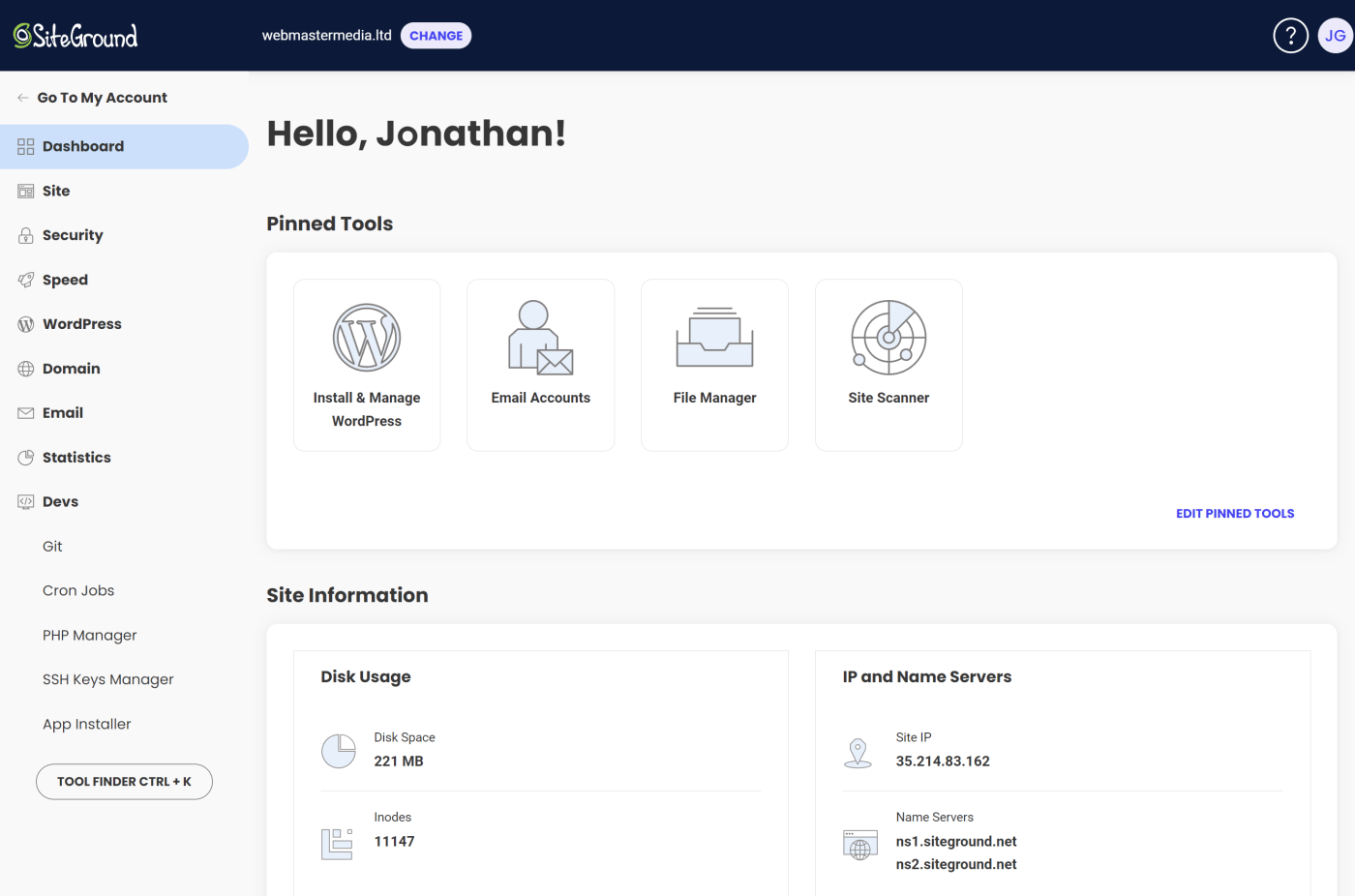
Bluehost, on the other hand, offers a dual interface that combines a custom dashboard with full cPanel access, catering to both beginners and technically advanced users. The platform includes a comprehensive help center filled with a wide variety of guides and tutorials, aimed at assisting users in managing and optimizing their websites effectively.
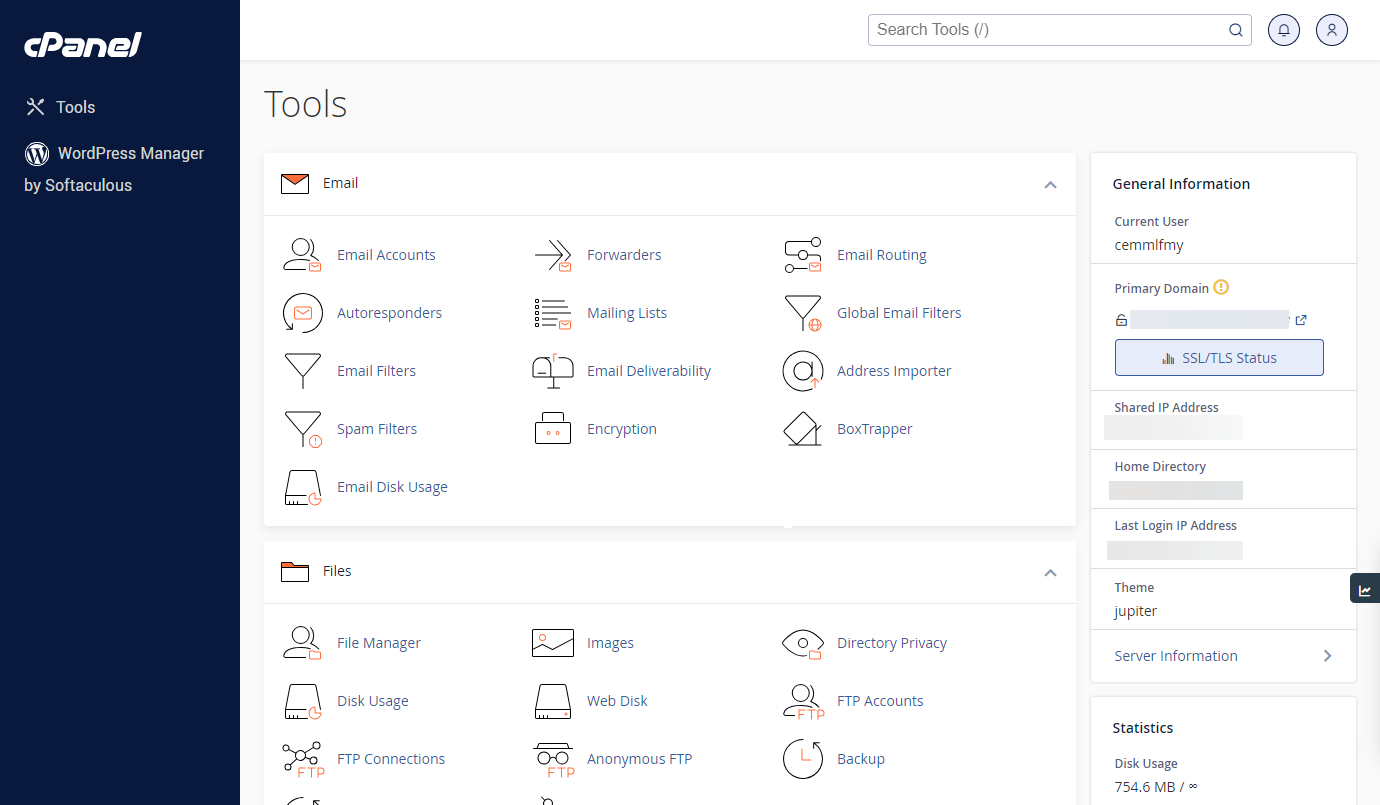
Both hosting providers offer site migration tools, yet their approaches vary. Bluehost provides resources and guides on migrating existing sites, which users must follow manually or with limited automated support. For those preferring professional help, they provide paid migration services. SiteGround stands out with its Free WordPress Migrator Plugin, enabling a seamless and free site transfer. Additionally, they offer professional migration services for those who need more assistance, priced at roughly $30 per site. This flexibility in migration options makes SiteGround a slightly better choice for seamless and hassle-free transfers.
The platforms provide extensive knowledge bases filled with guides, how-to articles, and instructional content. Bluehost’s knowledge base is comprehensive, providing answers to common questions and offering guides that cover a wide array of topics related to WordPress and general hosting issues. Their 24/7 support is readily accessible via chat, phone, and email, ensuring that help is always available. SiteGround’s knowledge base is comparable, with pinned help on relevant pages and automated solutions for quick problem-solving. Their 24/7 customer support, which includes live chat, phone support, and quick-response tickets, maintains an impressive 98% satisfaction rate. Overall, both help centers are accessible and efficient, aiding users in resolving issues independently and promptly.
User management
accessibility.
Score Components:
- Role customization (40%): Flexibility in creating and defining user roles and
permissions. - Ease of management (30%): User interface and tools for managing users.
- Access control (20%): Effectiveness of access control measures for different user
levels. - Scalability (10%): Ability to manage a growing number of users efficiently.
 8.0
8.0
 8.4
8.4
🏆 Winner SiteGround: Offers customizable client roles and robust user management tools.
When comparing Bluehost and SiteGround, both platforms offer impressive user management capabilities, but SiteGround has an edge in customization and white-label client features. Bluehost provides defined user roles such as Primary Contact, Admin Contact, and Tech Contact, each with set permissions essential for managing the account at various levels. SiteGround, on the other hand, allows the creation of custom roles with specific permissions, offering more flexibility and control. This flexibility can be particularly beneficial in larger teams or businesses with diverse needs.
Bluehost’s user interface for managing users is straightforward and intuitive. You can easily add users by navigating to the Accounts & Users section, entering their details, and assigning roles. The process is user-friendly but somewhat rigid due to predefined roles. SiteGround allows users to be added as collaborators or clients through a streamlined Client Area interface. The ability to provide users with white-label access enhances user experience by eliminating the SiteGround branding, making the interface more professional for client-facing tasks.
In terms of access control measures and the ability to manage a growing number of users, both Bluehost and SiteGround are effective. Bluehost’s predefined roles simplify user role management, ensuring that only authorized users can perform critical tasks. SiteGround excels in scaling with growth by allowing custom roles and providing separate Site Tools access for each added user or collaborator. This separation enhances security and workflow efficiency since permissions can be precisely tailored to each user’s responsibilities.
Bluehost user roles table:
| Role | Description | Access highlights |
|---|---|---|
| Primary Contact | Main account holder, communicates directly with Bluehost | Full permissions to edit contact/payment info, manage users, purchase/renew products, manage domains |
| Admin Contact | Manages settings and permissions for other users | Can manage payments, add/edit/delete roles, purchase/renew products, manage WHOIS Admin and Tech info |
| Tech Contact | Handles technical aspects of the account | Can manage products/services, renew services, edit WHOIS Admin and Tech info |
SiteGround user roles table:
| Role | Description | Access highlights |
|---|---|---|
| Collaborator | Builds/maintains site, contacts support | Access to Site Tools, can manage the site, and has support contact permissions |
| White-label Client | Client access without SiteGround branding | Access Site Tools through a white-label URL, specific permissions set by the custom role |
Customer support
hosting provider.
Score Components:
- Support communication channels (30%): Measures the variety of customer support types
provided (live chat, chatbot, email, phone, etc.) - Availability (20%): Assesses the availability hours for each channel, including 24/7
support options. - Technical support quality (30%): Assesses whether the provider offers comprehensive
technical support, including hardware upgrades (e.g., HDD to SSD), software installations, and web
server configuration changes. - Enterprise support (20%): Checks if there are dedicated or priority support services
for enterprise-level customers.
 7.9
7.9
 9.2
9.2
🏆 Winner SiteGround: A highly rated hosting provider with top-notch customer support and client satisfaction.
 |
 |
|
|---|---|---|
Phone support |
||
Live chat support |
||
Chatbot |
||
Email/ticket support |
||
Enterprise support (dedicated agent, priority support) |

Bluehost and SiteGround both offer extensive customer support options with 24/7 availability via live chat and phone support. Bluehost’s approach focuses on providing real-time assistance through live chat and phone support; however, it has eliminated ticket-based support, which may slow resolution for more complex issues. Customer feedback for Bluehost is mixed, with some users praising the support while others express dissatisfaction due to long wait times and inconsistent quality.

SiteGround, on the other hand, excels in customer satisfaction with a rating of 4.99 out of 5 from numerous reviews. They offer a more comprehensive range of support options, including helpdesk tickets that receive fast responses within 15 minutes on average. SiteGround caters particularly well to its customers by providing extensively trained staff and a variety of self-help options such as AI-assisted solutions and a robust knowledge base. Both providers have dedicated support options, but SiteGround’s emphasis on high-quality, fast resolutions sets it apart.
User feedback
User feedback on Bluehost as a hosting provider is highly mixed. On the positive side, many users commend their affordable pricing, ease of use with WordPress integration, and the comprehensive range of features such as free domain names, SSL, and excellent customer support. However, numerous reviews criticize the service for frequent outages, technical support issues, hidden fees, and unreliable performance, which have significantly impacted users’ businesses. Additionally, complaints about complicated navigation, aggressive upselling, and a steep learning curve for first-time users are common. While some users find Bluehost reliable and cost-effective, others have had severely negative experiences, citing problems like non-functional websites, billing issues, and inadequate customer service.
SiteGround garners consistently high praise for its exceptional customer support and user-friendly tools, frequently being described as reliable and straightforward to use. Users commend the fast and knowledgeable technical assistance, which is available through various channels like chat and phone, often highlighting the effectiveness and patience of support representatives. Despite these positive aspects, some users find renewal pricing relatively expensive and note that navigating to the support section can be cumbersome. Issues with specific features, such as webmail interface and certain plugins, are also mentioned, but overall, SiteGround is recommended for its strong support and ease of use, especially for beginners and small businesses.
FAQ
Which platform is better suited for hosting WordPress websites?
Both Bluehost and SiteGround are well-suited for hosting WordPress websites, offering specialized WordPress hosting with advanced features like auto-updates and staging. Bluehost excels in optimized infrastructure for WordPress sites, providing superior speed and scalability. SiteGround leverages Google’s premium cloud infrastructure, which enhances reliability and speed. Therefore, the choice depends on specific needs such as performance preferences and budget.
Are both platforms suitable for beginners?
Yes, both Bluehost and SiteGround are suitable for beginners. Bluehost is particularly beginner-friendly with cost-effective plans and easy setup for small businesses and new website owners. SiteGround provides a more advanced but intuitive user management interface, making it accessible even for those with limited technical knowledge. Both offer comprehensive support options to help beginners navigate their platforms.
Which hosting service offers better security features?
SiteGround offers more advanced security features, including an in-house WAF with custom rules, AI anti-bot system, daily backups, and SSL certificates via Let’s Encrypt. They also provide distributed backups with up to 30 copies and on-demand backup options. While Bluehost offers DDoS protection, web application firewall, and SiteLock malware scanning, SiteGround’s focus on advanced automated backups and AI-driven security measures gives it an edge in this category.
What are the major differences in pricing and value between bluehost and siteground?
Bluehost offers budget-friendly pricing starting at $2.95 per month with features such as free SSL certificates for the first year and free domain registration. SiteGround, though slightly more expensive, emphasizes enhanced security and higher performance, using 100% renewable energy and offering managed WordPress hosting. Overall, Bluehost provides more cost-effective options while SiteGround focuses on premium features and reliability, which may justify the higher cost for some users.
Which hosting service offers more scalability options for growing websites?
Bluehost offers a wide range of scalable options, from shared hosting to VPS, dedicated, and cloud hosting, allowing users to seamlessly upgrade as their website grows. SiteGround provides elastic scaling with plans like StartUp, GrowBig, and GoGeek, along with premium cloud hosting options. However, Bluehost’s variety of plans and straightforward upgrade process makes it more accommodating for growing websites.
Which platform offers better customer support?
SiteGround is widely praised for its exceptional customer support, maintaining a 4.99 out of 5 satisfaction rating and offering 24/7 support via live chat, phone, and fast-response tickets. Bluehost also provides 24/7 support through live chat and phone but has mixed reviews, with some users citing issues like long wait times and inconsistent service quality. SiteGround’s comprehensive and highly rated support options make it the better choice for customer support.
The making of this blog
We followed a clear, step-by-step process to write and research this article.









